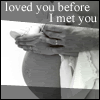The Gap by Michael Crenlinsten
The gap between those who have lost children and those who have not is profoundly difficult to bridge. No one whose children are well and intact can be expected to understand what parents who have lost children have absorbed and what they bear. Our children come to us through every blade of grass, every crack in the sidewalk, every bowl of breakfast cereal. We seek contact with their atoms, their hairbrush, their toothbrush, their clothing. We reach for what was integrally woven into the fabric of our lives, now torn and shredded.
A black hole has been blown through our souls and, indeed, it often does not allow the light to escape. It is a difficult place. To enter there is to be cut deeply, and torn anew each time we go there, by the jagged edges of our loss. Yet we return, again and again, for that is where our children now reside. This will be so for years to come and it will change us profoundly. At some point in the distant future, the edges of that hole will have tempered and softened but the empty space will remain - a life sentence.
Our friends will change through this. There is no avoiding it. We grieve for our children, in part, through talking about them and our feelings in having lost them. Some go there with us, others cannot and through their denial - a further measure, however unwittingly, is added to an already heavy burden. Assuming that we may be feeling "better" in six months is simply "to not get it."
The excruciating and isolating reality that bereaved parents feel is hermetically sealed from the nature of any other human experience. Thus it is a trap - those, whose compassion and insight we need most, are those for whom we abhor the experience that would allow them that sensitivity and capacity. And yet, somehow there are those, each in their own fashion, who have found a way to reach us and stay, to our comfort. They have understood, again each in their own way, that our children remain our children through our memory of them. Their memory is sustained through speaking about them and our feelings about their death. Deny this and you deny their life. Deny their life and you no longer have a place in ours.
We recognize that we have moved to an emotional place where it is often very difficult to reach us. Our attempts to be normal are painful and the day to day carries a silent, screaming anguish that accompanies us; sometimes from moment to moment. Were we to give it its own voice we fear we would become truly unreachable, and so we remain "strong" for a host of reasons, even as the strength saps our energy and drains our will. Were we to act out our true feelings we would be impossible to be with. We resent having to act normal, yet we dare not do otherwise. People who understand this dynamic are our gold standard. Working our way through this over the years will change us as does every experience - and extreme experience changes one extremely. We know we will have recovered when, as we have read, it is no longer so painful to be normal. We do not know who we will be at that point or who will still be with us.
We have read that the gap is so difficult that, often, bereaved parents must attempt to reach out to friends and relatives or risk losing them. This is our attempt. For those untarnished by such events, who wish to know in some way what they, thankfully, do not know, read this. It may provide a window that is helpful for both sides of the gap.
Friday, November 05, 2010
Subscribe to:
Posts (Atom)








